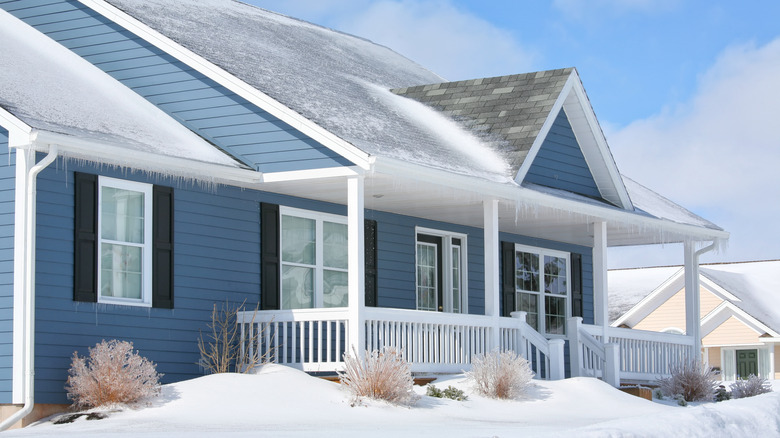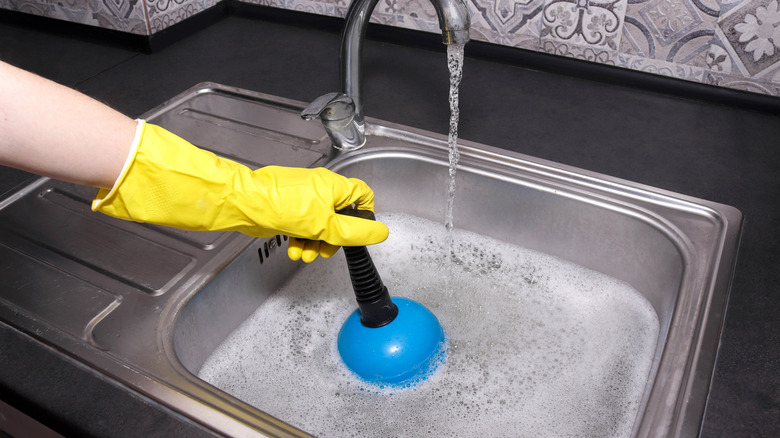The Winter Prep Drain Hack That's More Of A Headache Than Helpful
When looking for ways to prep your home for the winter, some tips, like inspecting your fireplace, trimming down tree branches, or weather stripping your windows, are common sense. Other hacks, however, aren't quite as clever as they sound, and they might just end up causing you a headache down the line. For example, pouring vinegar down your drains to avoid clogs might sound like a smart idea, but it's not really helping. Yes, vinegar can be a versatile cleaning tool, but there are limits to what it can do.
With cold temperatures, pipes tend to contract and clog more easily. But the reason for homeowners pouring vinegar down the drain as winter comes around isn't just cold temperatures. It's also believed to help during storms and heavy rain, which can cause water to overwhelm pipes and leave behind debris. This is why, to prevent stormwater residue from clogging pipes after a storm, people pour vinegar down their drains. In some cases, you might also hear about people using a mixture of vinegar and baking soda to clean their pipes.
The thing is, while baking soda and vinegar have that famous fizzy power that can help with small clogs, they have some serious downsides. First of all, vinegar doesn't work wonders on serious blockages, which are the ones you should be most worried about. And not only is it not effective, but vinegar can also cause some serious damage to your pipes, especially if they're older.
Why vinegar is the enemy of pipes (and what to do instead)
The reason you should avoid pouring vinegar down drains is because of its acidity. Some pipes, especially those made of copper, steel, and some other metals, are sensitive to acidity, which can corrode them. Over time, this can weaken the pipes and make them crack, burst, and leak. While PVC pipes aren't as sensitive to acidity, they can also be damaged by the pressure that baking soda and vinegar create when they fizz. It's safest to steer clear.
To safely deal with a clogged drain, the best approach is to use a tried-and-true method that can dislodge the blockage, rather than trying to dissolve it. Don't use commercial chemical drain cleaners, which can damage your pipes and contaminate local water supplies. Instead, use a drain snake or a plunger. If the clog is stubborn, consider calling a plumber to get the problem solved quickly and safely.
If you're not dealing with a clog yet but you're looking for ways to preemptively avoid them, consider using sink strainers in the kitchen and hair-catching strainers in the bathroom. These will keep the pipes clean and the water running. In addition, get in the habit of flushing drains with hot water every month or so to dissolve and remove buildup and debris. To do this, you can either pour hot boiling water down the drain slowly from a kettle, or you can fill up the sink with hot tap water before letting it all flush down at once. Finally, if you're dealing with repeated clogs and issues, consider hiring a professional to check on your pipes and inspect your sewer line.

